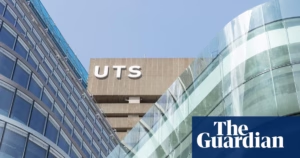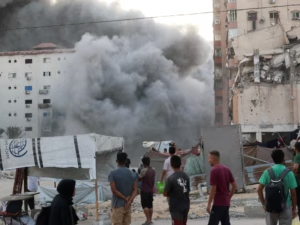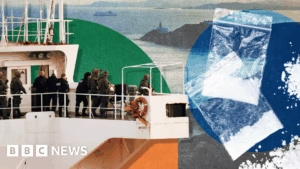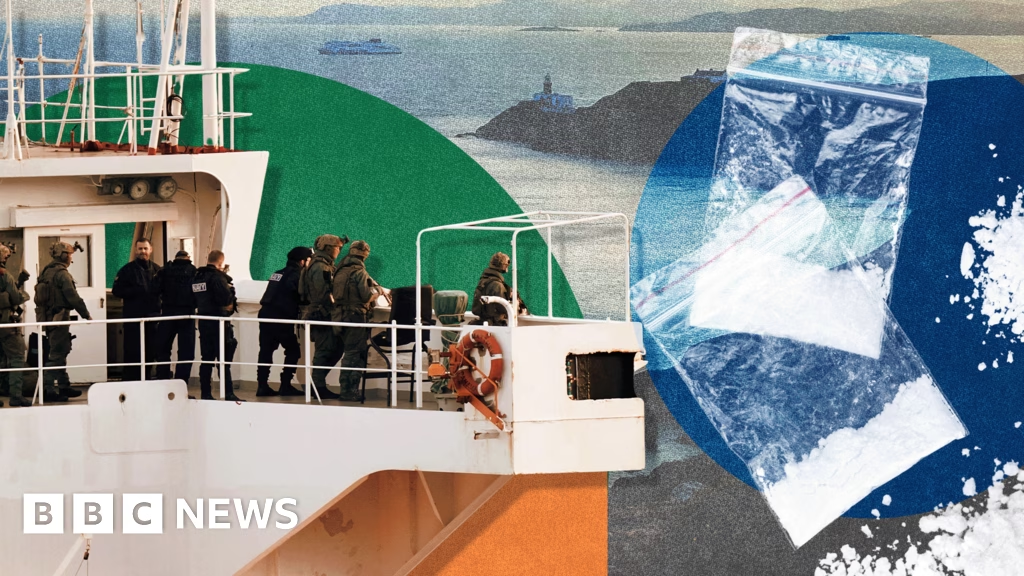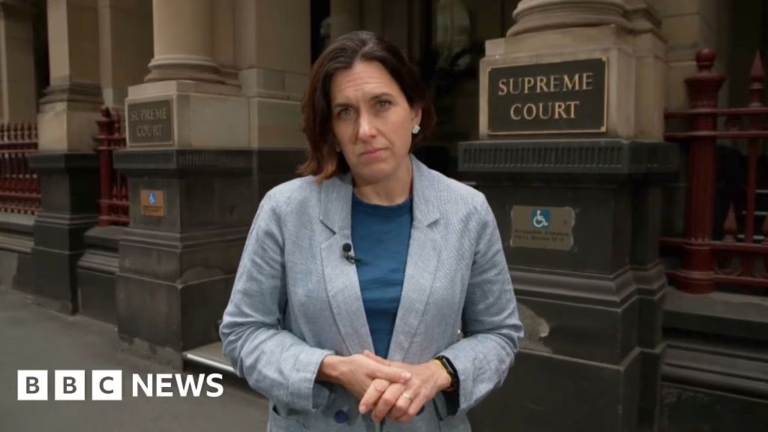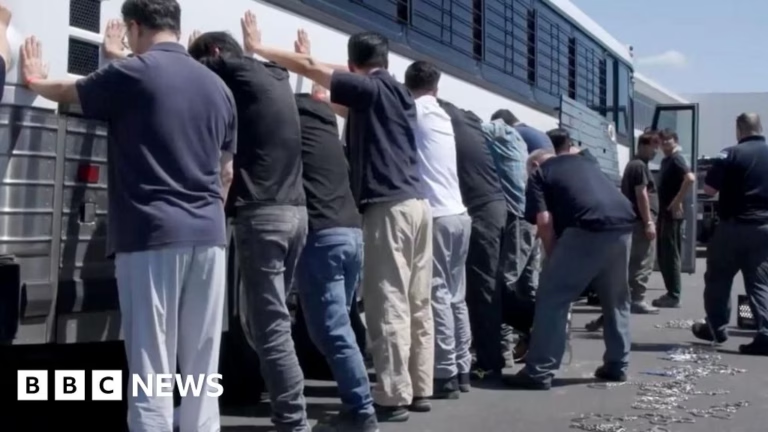[Image: BBC Panorama & BBC Northern Ireland Spotlight]
Picture taken from the air, showing the MV Matthew docked in Cork Harbour. It is a large cargo ship, painted mostly red, with a black middle, with MATTHEW written on the front in white capital letters. Ropes can be seen holding it in place and it is on water. On the dockside are small houses, with trees and a town beyond. [Credit: BBC Panorama & BBC Northern Ireland Spotlight]
The text message came from Dubai with a Santa emoji. “OK lads. No need for luck. Really this couldn’t be any more straightforward. Just relax and this will all be over soon.” It was sent to a fisherman from Ukraine and an unemployed man from Teesside who were sailing to the middle of the Irish Sea to collect cocaine from a passing cargo ship, the MV Matthew.
Darragh MacIntyre
[BBC Panorama & BBC Northern Ireland Spotlight]
Watch how drug smugglers panicked as the Irish military closed in on them
In the high-stakes world of drug trafficking, authorities are facing a relentless battle against smugglers who are adapting their methods to evade detection. The Irish authorities recently achieved success in an audacious attempt to traffic more than 2.2 tonnes of cocaine into the UK and Europe. Eight men were convicted and sentenced to a total of 129 years, and all the cocaine was destroyed. However, despite this victory, European law enforcement agencies admit they are struggling to stem the tide of cocaine crossing the Atlantic from South America.
The Maritime Analysis Operations Centre, which polices the transatlantic drug trade, says that 100 ships suspected of trafficking drugs to Europe were not stopped last year due to a lack of vessels to intercept them. They also monitor up to 600 vessels per day and record amounts of cocaine are being produced in South America.
Security has tightened at European ports like Rotterdam and Antwerp, prompting smugglers to seek alternative routes. Many are now using at-sea drop-off methods, unloading bales of cocaine from a “mother” vessel to be picked up by a smaller “daughter” craft and taken to shore.
Ireland, with its long coastlines and open border with the UK, has become a target for traffickers. The country’s defense forces, despite having the lowest defense spending in the EU, are working to combat the cartels. However, Ireland’s territorial waters are vast, and its Navy has limited resources.
Ex-Irish Army commandant Cathal Berry describes Ireland as a “narco superhighway”, with traffickers taking advantage of vulnerable coastlines. He says funding is needed to address the lack of ships and air support needed for an effective defense against smugglers.
While the MV Matthew operation could be seen as a win for law enforcement, the Irish authorities have now discovered another four attempts to traffic large quantities of cocaine to the UK. The traffickers’ persistence and vast resources mean that efforts to combat drug trafficking must be continuous.
Source: https://www.bbc.com/news/articles/c5yvplyrrwno?at_medium=RSS&at_campaign=rss
